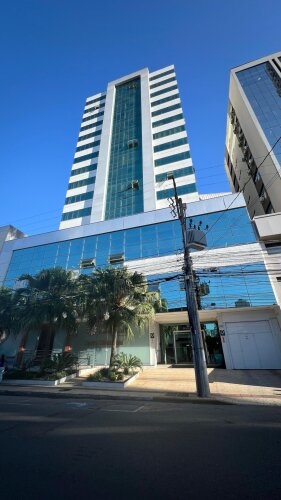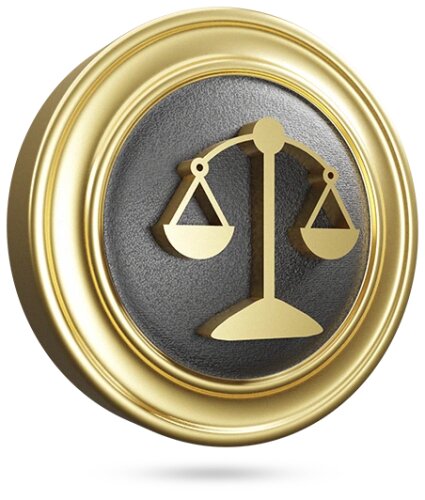Best ADR Mediation & Arbitration Lawyers in Itajaí
Share your needs with us, get contacted by law firms.
Free. Takes 2 min.
List of the best lawyers in Itajaí, Brazil
About ADR Mediation & Arbitration Law in Itajaí, Brazil
Alternative Dispute Resolution (ADR), encompassing mediation and arbitration, is an increasingly popular mechanism for resolving disputes outside of traditional courts in Brazil, including Itajaí. These methods emphasize quicker, more cost-effective, and relation-preserving solutions for parties in conflict. Under Brazilian law, ADR has gained substantial support, particularly with the enactment of the Arbitration Law (Law No. 9.307/1996) and updates from the Civil Procedure Code. Itajaí, being a prominent port and business city in Santa Catarina, often sees ADR procedures applied in commercial, family, labor, and civil disputes, making local expertise crucial.
Why You May Need a Lawyer
There are several scenarios where seeking the support of a lawyer experienced in ADR mediation and arbitration in Itajaí is beneficial:
- When negotiating the terms of a mediation or arbitration agreement
- If you are party to a contract that stipulates ADR as the primary means for resolving disputes
- When facing a business or personal dispute where litigation might be expensive, slow, or damaging to relationships
- If you require guidance on your rights and obligations during an ADR process
- When enforcing or challenging the outcome (award or settlement) of an arbitration or mediated agreement
- To ensure compliance with local procedural rules and Brazilian law
- For drafting or reviewing ADR clauses in contracts or agreements
Local Laws Overview
ADR processes in Itajaí adhere to the broader framework of Brazilian law but can have local adaptations, particularly regarding the choice of arbitral institutions and mediation centers. The principal legislation includes:
- Arbitration Law (Law No. 9.307/1996) - Governs how arbitration is conducted, the validity of arbitration agreements, procedures, and recognition/enforcement of arbitral awards.
- Civil Procedure Code (Law No. 13.105/2015) - Has specific provisions on mediation and conciliation.
- Mediation Law (Law No. 13.140/2015) - Defines voluntary and judicial mediation, the role of mediators, procedures, and enforceability.
Itajaí has local chambers and institutions that provide recognized mediation and arbitration services, often following national standards while meeting local needs. Language, competence, and enforceability remain central elements, so legal guidance is valuable to ensure compliance and fairness.
Frequently Asked Questions
What is the difference between mediation and arbitration in Itajaí, Brazil?
Mediation is a process where a neutral third party (mediator) helps parties reach their own settlement. Arbitration involves an arbitrator or panel who hears both sides and makes a binding decision, similar to a private court.
Are ADR agreements legally binding in Brazil?
Yes, both mediation agreements and arbitration awards are enforceable under Brazilian law, provided they meet legal requirements. Arbitration awards have the same effect as court judgments.
Do ADR processes replace going to court?
Yes, for disputes covered by valid ADR clauses, parties generally must use mediation or arbitration before resorting to the courts, except for cases excluded by law.
What kinds of disputes can be resolved through ADR in Itajaí?
Commercial, contractual, family, labor, and civil disputes are commonly addressed via ADR, provided they deal with disposable (negotiable) rights.
Is legal representation required during mediation or arbitration?
Although not always mandatory, legal counsel is highly recommended to protect your interests and ensure the process abides by the law.
How are mediators and arbitrators chosen?
They are typically selected by agreement between the parties, often from a roster of qualified professionals provided by local or national institutions.
Can I appeal an arbitration award in Itajaí?
Arbitration awards are generally final and binding, with limited scope for judicial review, mainly for procedural issues or legality.
How long does a typical ADR process take compared to court litigation?
ADR processes are usually much faster than court cases, often concluding within months, while court cases may take years.
Are ADR proceedings confidential in Brazil?
Yes, both mediation and arbitration are confidential, which protects sensitive business or personal information.
What are the costs involved in ADR in Itajaí?
Costs depend on the complexity of the case, fees of mediators or arbitrators, chosen institution, and legal counsel. ADR is often less expensive than litigation, but parties should get clear estimates in advance.
Additional Resources
Several organizations and bodies provide support for ADR in Itajaí and Brazil at large:
- Chambers of Mediation and Arbitration in Itajaí and Santa Catarina region
- Brazilian Arbitration Committee (CBAr) - a reference for ADR professionals
- Itajaí Bar Association (OAB/Subseção de Itajaí) - can provide referrals to qualified ADR lawyers
- Local business and trade associations for guidance in commercial disputes
- Governmental programs promoting mediation in family and civil matters via local courts
Next Steps
If you are involved in or anticipate a dispute that may benefit from ADR, or if your contract requires mediation or arbitration, consider the following:
- Consult a qualified lawyer in Itajaí with experience in mediation and arbitration to assess your situation
- Gather all relevant documents, contracts, and correspondence related to your dispute
- Check if your agreement specifies a particular ADR institution or set of rules
- Discuss your goals and concerns with your lawyer to determine the best strategy
- Make sure you understand your rights, obligations, and possible outcomes of the ADR process
Seeking professional legal advice early can save time, money, and help you achieve a more satisfactory resolution.
Lawzana helps you find the best lawyers and law firms in Itajaí through a curated and pre-screened list of qualified legal professionals. Our platform offers rankings and detailed profiles of attorneys and law firms, allowing you to compare based on practice areas, including ADR Mediation & Arbitration , experience, and client feedback.
Each profile includes a description of the firm's areas of practice, client reviews, team members and partners, year of establishment, spoken languages, office locations, contact information, social media presence, and any published articles or resources. Most firms on our platform speak English and are experienced in both local and international legal matters.
Get a quote from top-rated law firms in Itajaí, Brazil — quickly, securely, and without unnecessary hassle.
Disclaimer:
The information provided on this page is for general informational purposes only and does not constitute legal advice. While we strive to ensure the accuracy and relevance of the content, legal information may change over time, and interpretations of the law can vary. You should always consult with a qualified legal professional for advice specific to your situation.
We disclaim all liability for actions taken or not taken based on the content of this page. If you believe any information is incorrect or outdated, please contact us, and we will review and update it where appropriate.













